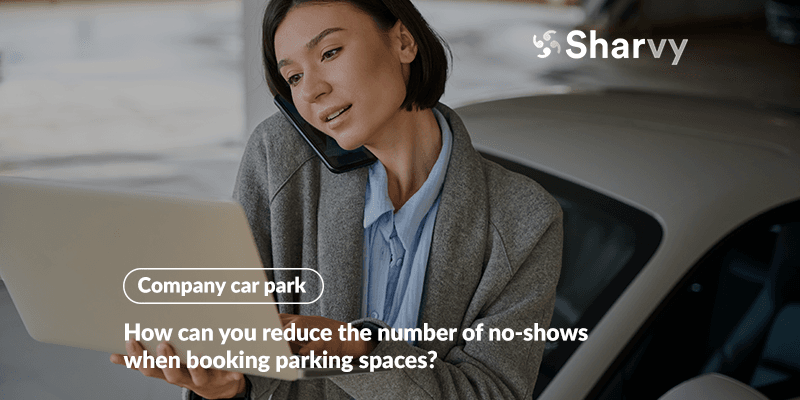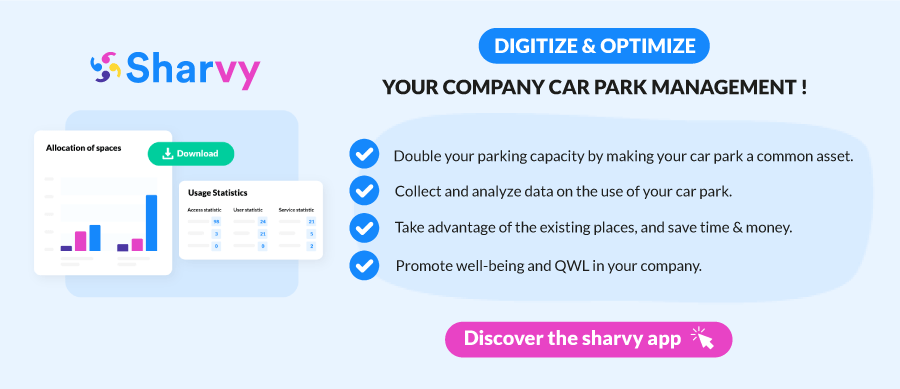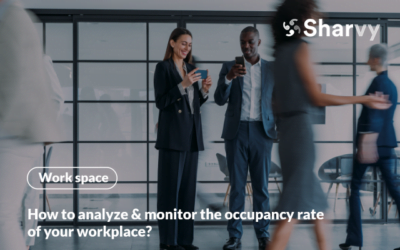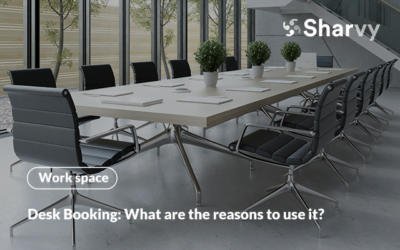Parking management applications have become essential tools for organising parking spaces in companies. They promise optimised management and smooth booking in just a few clicks.
But there is still a paradox: every day, reserved parking spaces remain vacant, while colleagues find themselves looking for an available space.
No-shows are a headache for many companies & continue to disrupt the efficiency of their solutions. So how can you reduce this phenomenon without sacrificing the flexibility so appreciated by your staff? Here’s how.
No-shows in company car parks : a persistent challenge?
The term « no-show » refers to a situation where an employee has reserved a parking space via a dedicated application, such as Sharvy, but does not occupy it, without having cancelled or modified the reservation in advance.
This creates vacancies that could have been allocated to other employees, often in a context of high demand.
There are many reasons for no-shows. Last-minute changes of plans & oversights are among the most common reasons. In a fast-paced business environment, employees’ schedules can change suddenly, leading them to forget or neglect to cancel their bookings.
However, these are not the only causes.
There is also a lack of awareness of the impact of no-shows. Employees are not always aware of the consequences of their no-shows: an empty space prevents another colleague from parking and disrupts the organisation of the company car park.
In addition, poor handling of the application can exacerbate this phenomenon. If the interface is not intuitive enough & if the cancellation procedure is not clearly visible, employees may forget to cancel their booking.
Paradoxically, when booking applications offer easy & penalty-free cancellation, employees may tend to book « just in case », without any real intention of parking, in the knowledge that they can always cancel at the last minute, with no consequences.
Although this flexibility can be seen as an advantage in certain situations, it has the collateral effect of encouraging a less rigorous commitment from users to their reservations.
Faced with these various factors, it is becoming essential for companies to rethink their car park management strategies & to take appropriate measures to limit no-shows.
The impact of no-shows : beyond empty places.
There’s no doubt about it: no-shows create a domino effect that directly affects the organisation, employee satisfaction & the efficiency of the booking system. Here’s a detailed overview of the different consequences:
- A loss of productivity : When a reserved space remains unoccupied without cancellation, it disrupts the organisation of the company car park. An employee arriving at work & unable to find an available space will have to look for parking elsewhere, wasting precious time and damaging productivity. This situation causes a general delay, affecting the smooth running of business activities. The more unused spaces there are, the more inefficient the process becomes, slowing down the whole organisation.
- Employee frustration : The perceived injustice of seeing a place unused by another employee affects their experience and satisfaction at work. This repeated frustration can lead to disengagement, with some employees eventually deeming the booking application ineffective & preferring not to use it any more.
- Inefficiency of the reservation system : If the application cannot track & manage no-shows, employees may start to doubt its effectiveness & choose not to use it any more. What’s more, it makes it more difficult to anticipate & plan for future parking needs. The company may underestimate actual demand, relying on an inefficient system, which can lead to poor resource allocation & organisation in the future.
Each of these reasons demonstrates the importance for companies of implementing booking solutions that are both intuitive & capable of managing no-shows, in order to avoid negative consequences for organisational efficiency & employee well-being.
5 solutions to combat no-shows in your company car park.
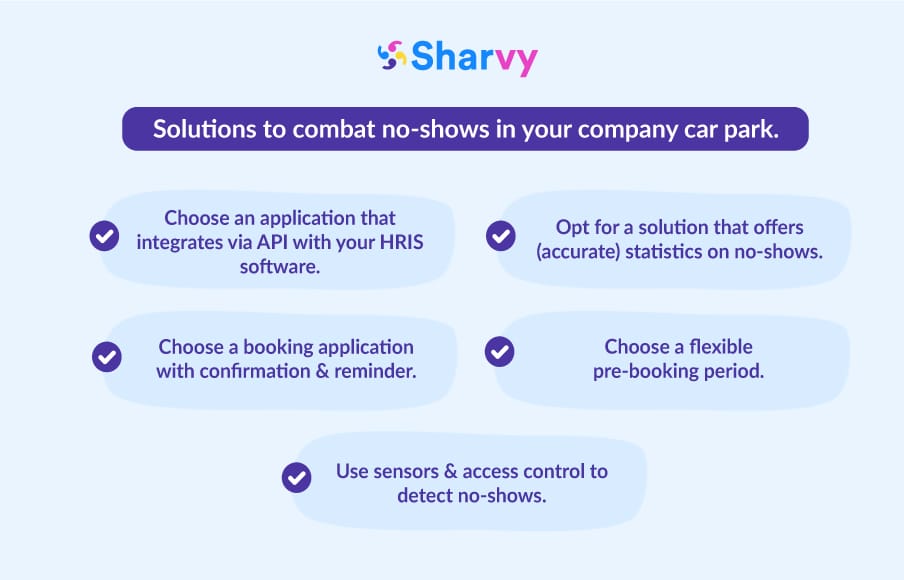
1. Choose an application that integrates via API with your HRIS software.
Thanks to this connection, your Parking Management application communicates with your HRIS software, so your employees don’t have to enter data twice and there are no inconsistencies.
As a result, in the event of a last-minute change (an unscheduled teleworking day, for example), the system automatically releases the parking space (if it has already been reserved) and makes it available again to the employees requesting it.
This prevents unnecessary bookings and optimises the car park occupancy.
What’s more, thanks to this API, HR managers can ensure that access permissions to parking areas are aligned with the information available in the HRIS. This correlation guarantees enhanced security and transparent management of access rights. It also reduces the risk of abuse and inconsistencies in the allocation of parking spaces.
This functionality is easily achievable with solutions like Sharvy! Contact us to find out more.
2. Opt for a solution that offers (accurate) statistics on no-shows.
With tools like Sharvy, you can generate statistics on no-shows, enabling you to identify recurring contributors.
For example, after several incidents of this type, the administrator can be informed of repeated absences & identify the « responsible ». This transparency makes it possible to deal with problems in a targeted way & to understand whether these absences are due to an oversight, poor management or abuse.
Depending on the results, the company may decide to impose various penalties, such as a temporary ban on access to the car park (for a week or ten days, for example), which encourages employees to respect their reservations to avoid being penalised.
Depending on the nature of the sanction, it can be integrated directly into the company car park management application (e.g. blocking the possibility of making a reservation by temporarily deactivating the account of the employee to be sanctioned).
This section can be accessed via the Sharvy application. Clearly, the « penalties » can be modulated according to the frequency of no-shows, allowing a more flexible approach while encouraging compliance with the system.
3. Choose a booking application with confirmation & reminder.
Another (obvious) lever is to set up automatic notifications and reminders.
It’s a good idea for the Parking Management application to send the user a reminder at the start of the week, such as the day before the reservation was made (by SMS, email, or simply by notification in the application). This can greatly reduce the number of no-shows.
What’s more, this type of reminder both encourages confirmation of the booking & offers the possibility of cancelling it in advance if necessary.
If an employee decides not to use a reserved a parking space, they can easily release it, allowing another employee to use it. These reminders also reduce forgetfulness & increase employee commitment to their reservations.
4. Reduce no-shows with a flexible pre-booking period.
Optimised management of bookings can also involve a flexible pre-booking period, enabling you to anticipate needs while adapting to unforeseen circumstances.
For example, allowing employees to book several days/weeks in advance while giving them the option of cancelling (easily) up to a few hours before their arrival helps to limit no-shows.
To prevent abuse, mechanisms must be put in place, such as the instant reallocation of cancelled places to employees on « waiting list ».
An effective management application must be capable of dynamically adapting availability, in particular by enabling employees looking for parking to reserve a free space in real time.
However, this flexibility must not encourage opportunistic behaviour, with some employees systematically reserving « just in case » without any real intention of parking.
To remedy this, restrictions such as limiting the number of early bookings, monitoring frequent cancellations, and giving priority to the most assiduous employees can be considered.
By combining anticipation and real-time adjustments, you can optimise the use of your company car park, while offering your employees a smooth and equitable experience.
5. Use sensors & access control to detect no-shows.
Access control (badges, cameras with number plate recognition, IoT modules) makes it possible to identify employees who reserve a parking space without actually turning up, by cross-referencing reservation data with actual entries to the car park.
The system can check whether a user who has booked a space has actually passed through the car park entrance within the « » time slot. If no trace of passage is detected after a certain time, the absence is recorded as a no-show.
In the event of a no-show, the place may be released after a certain period and made available to another user (on standby).
This automated analysis makes it possible not only to free up unused spaces for other employees, but also to identify repeat users who do not respect their reservations.
Adopting sensors and intelligent access control helps to limit abuse, improve car park efficiency & ensure greater equity between your employees.
In conclusion
No-shows in company car parks are not inevitable.
By combining technology and good practice, it is possible to optimise car park management, improve the employee experience and maximise the use of this precious space. Access control, monitoring of statistics, controlled flexibility of reservations… These are just some of the levers that can be used to strike a balance between organisation and user freedom.
But beyond the tools, the key lies in empowering employees. A well-managed car park is first and foremost one where everyone plays the game, cancelling their reservation only if something unforeseen happens & respecting the rules in place.
Got a question? Check out these FAQs !
Should employees who reserve a place without using it be systematically penalised?
Sanctions may be a last resort (although this depends on the company’s culture), but it is preferable to opt for incentives first.
For example, by monitoring no-show statistics, we can identify employees who book without using their seat. A first approach is to raise their awareness via reminders in the application, or verbally if the opportunity arises.
At the same time, you can introduce progressive restrictions, such as giving priority to the most regular employees, followed by a temporary ban on access to the car park after several unjustified absences.
Although they are often misunderstood, they are extremely effective. The aim is to encourage more responsible use of parking spaces without immediately penalising employees.
What technological tools can help reduce no-shows?
A number of technologies can improve car park management: access control with plate recognition, such as RFID badges & IoT modules (available via the Sharvy application), parking sensors to detect empty spaces, automatic notifications to remind people of reservations, and also integration with HRIS tools to adjust the availability of spaces according to actual attendance.
Want to find out more? Check out our latest articles!
How to analyze & monitor the occupancy rate of your workplace?
How do you calculate the occupancy rate of your workplace? What is the difference with the expansion rate of your offices? Focus!
Desk Booking : what are the reasons to use it?
What is desk booking? Who is it for? What are the advantages and disadvantages of this practice? Find the answers here.
Hospitality management : the right business strategy?
What is Hospitality Management? Is it the right business strategy? What are the benefits? Focus in this article.
Subscribe to our newsletter!
Resources
Contact us
+44 117 463 6990

